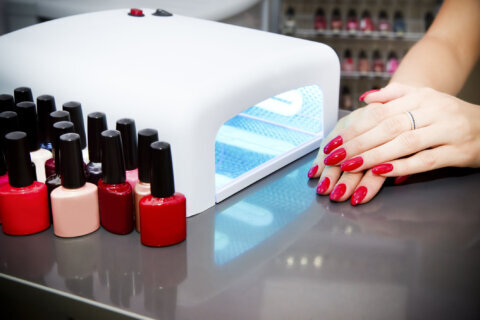Should you scrub a cast iron pan with soap?
Fans of the popular cookware might threaten to hit you over the head with their pan if you do that, but Sean O’Keefe, professor in the Department of Food Science and Technology at Virginia Tech, is tackling that myth, among other do’s and don’ts when it comes to cast iron.
Cast iron skillets are popular because they do not degrade over the years and release unhealthy chemicals into your food.
“Cast iron is one of those things that’s largely indestructible,” O’Keefe said.
Unlike stainless steel, cast iron can rust. Stainless steel includes chromium, which produces a chromium oxide layer on the surface of the skillet, preventing rust. Bare cast iron rusts rapidly, according to O’Keefe, so that’s why it is good practice to “season” it thoroughly when first cooking with the pan.
O’Keefe said that among the misconceptions with cast iron is you shouldn’t use it to cook acidic foods, because it can damage the seasoned layer. He said that’s partially true.
You can use a cast iron pan to cook, but acidic foods in the pan for a long period can work away at the protective layer, said O’Keefe.
“If I’m going to fry something and I’ve got tomatoes or something acidic in it, I’m not worried about that,” he said. “But I certainly wouldn’t use a cast iron caldron, or something that’s made with cast iron, for making spaghetti sauce.”
Much of the advice a budding chef may get from a veteran cast -iron user is to not use soap to clean it, no matter what. O’Keefe said that was true decades ago, but not as true these days because most modern dish soaps don’t contain lye, which most dish soaps had decades ago.
“If you see soap use causing rusting on your frying pan, that means it hasn’t been seasoned properly,” he said. O’Keefe said modern soap won’t wear-off the protective layer of a properly seasoned pan.
Are cast iron skillets dishwashers safe? Yes, as long as they are placed in the dishwasher without soap pods. O’Keefe said the ingredients in soap pods can be hard on the pan.
“Stuff that is much more aggressive, like we use in dishwashers, that’s going to be much worse on the front of the cast iron frying pan than just regular detergent that we use for hand washing,” he said.
Water-only washes in a dishwasher won’t hurt the pan, but you also don’t want the pan to remain wet for long periods of time if the dishwasher doesn’t fully dry it, according to O’Keefe.
He said cast iron will continue to be a fixture in kitchens and joked that it has even led to family squabbles.
“We do see these things handed down in families, and we see people fighting for them. It’s like my sister got my mom’s sewing machine, but I’ll be damned if she gets my mom’s cast iron,” O’Keefe said.
Tips for caring for cast iron, provided by O’Keefe
- Season your pan thoroughly before you first use it. To do this, rub a thin, even layer of fat or oil on the pan’s surface, inside and out. Then place it upside down into the oven for 1 hour at 450 degrees Fahrenheit to polymerize. Repeat this process two to three times to create an impermeable layer of oxidized oil on the surface. Note that some pans come pre-seasoned.
- After each use, rinse your pan with warm water and soap, if needed. Thoroughly dry it, then rub it down with oil to maintain the seasoning layer.
- The type of oil you use when seasoning your pan matters. Choose an oil with high polyunsaturated oil composition that can make a firm layer, such as soybean or flaxseed oil. Something like coconut oil will not work as well.
- Cast iron should be preheated before adding food. Iron heats more unevenly than other pan types, so make sure the entire surface is hot.
- Cast iron also gives off higher heat and holds heat longer than other types of pans, so use caution when handling your pan.
- Wood utensils are ideal, but contrary to popular belief, you can use metal as long as you’re not digging into the pan surface, damaging the top layer.
Get breaking news and daily headlines delivered to your email inbox by signing up here.
© 2024 WTOP. All Rights Reserved. This website is not intended for users located within the European Economic Area.








